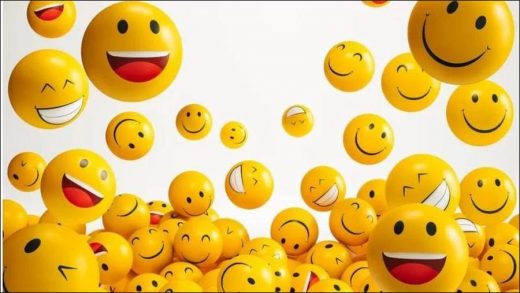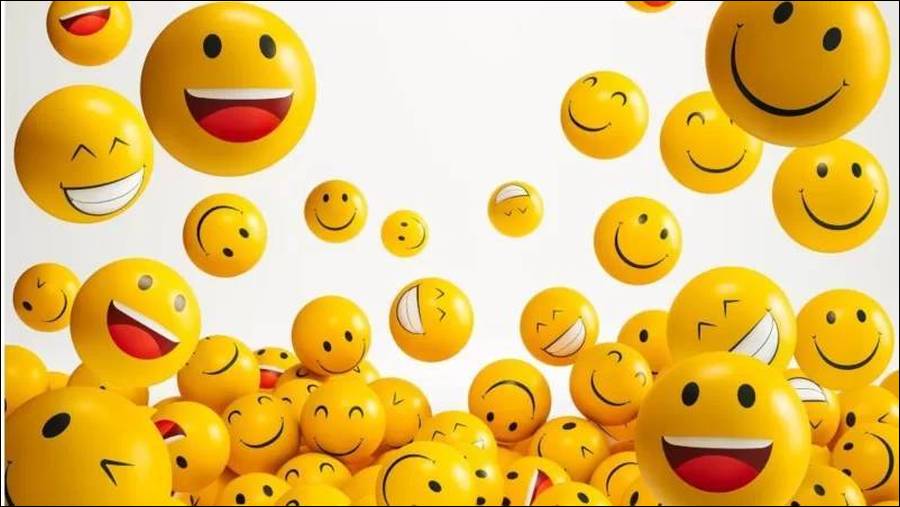Is happiness the purpose of life or an obsession?
If you ask psychologist Edgar Cabanas, happiness has become “a selfish concept, just like a consumer good or a job.”
Edgar Cabanas and sociologist Eva Illouzhe wrote a book called “The Happiness Sickness: How Science and the Happiness Industry Control Our Lives.”
The two authors question many of the views put forward by the multimillion-dollar “happiness industry.” “Happiness is just a choice” is one of them.
They say slogans like “You can have it if you really want it” make people feel guilty and disappointed when things don’t go their way.
Researcher Edgar Cabanas, working at Camilo José Cela University in Madrid, discussed the scientific validity of the concept of positive psychology while answering BBC Mundo’s questions.
Cabanas believes that we should stop obsessing over our individual happiness and instead work towards shared happiness.
You said in your talk that it is possible to get away from the idea of happiness – but why do you think that would be good?
One of the main problems with the discourse of happiness is that happiness has become an obsession, almost addicted to gurus, self-help books, and life coaches’ promise of a better, fuller life that will enable us to thrive.
The promise is misleading, because that happiness never really comes. The goal is never achieved because it is a never-ending process. We fall into the trap and become addicted to these products.
For example, someone who buys a personal development book to know himself or to be happy does not buy a single book. He gets the next one and the next one too. If these books really made us happy, one would be enough, right? But that doesn’t happen.
We need to get out of this cycle, realize that this is a trap.
You say that the thought that happiness is within our control causes the unhappy ones to feel guilty. How does this affect our mental health?
It affects very negatively. Phrases such as “You have to be happy, all you need to live a good life is yourself” sound good. But the facts are not like that.
In the contemporary idea of happiness, the role of our conditions is either ignored or minimized. Although it has no scientific basis, there is a popular myth that happiness is 50 percent dependent on our genes, 40 percent on our will, and 10 percent on circumstances.
In other words, 90 percent of happiness is defined only by us, not by the life around us, our income, social class, cultural values of the place we live in, our families, the support we have. It’s interesting that all this is considered only 10 percent of happiness.
When did we become obsessed with happiness, individually and as a society?
Relatively recently. Self-help books and happiness coaches emerged in the USA in the 1950s and 60s, and that culture grew. Outside the United States, it has become more common since 2000, when the current of positive psychology emerged, which aimed to give these ideas a scientific appearance.
This market was not affected by the crises. The financial crisis of 2008 was a stimulus, and the bombardment of news and advice on social networks, the media, and health magazines increased.
We fear sadness and pain. Maybe this is why we obsess about happiness. Say what?
Yes, this increases as we say that the most important thing in life is happiness. We can argue whether it is the most important thing in life, but first we need to know what happiness is. Interestingly, no one knows how to define happiness.
If happiness is entirely up to you, how would a happiness guru know what you need to be happy? If it is not an individual thing, then the discourse that happiness depends on oneself is contradictory.
Behind this is the bad definition of some emotions as “negative”. Emotions are never positive or negative, whether they are positive or negative depends on the situation and the role it plays in the moment.
For example, we may feel anxious and therefore distressed. But a little anxiety is good, it plays a positive role before a race or exam.
It is said that anger is a negative emotion. Anger can be very negative indeed if it leads to violent acts or abuse. It is only positive if it enables us to fight injustice or to right wrongs.
You’re talking about people who think they should be happier, even if they’re feeling good. Why is this happening?
This is the essence of the feeling that we define in the book as the disease of happiness. We say that a happy person is a person who believes that something is not right, that he is sick, even if it is not true.
Like the sick person, the happy patient always believes that he is sick because he is not happy enough. He believes that he has not fulfilled his potential. Although he is good, he is obsessed with being bad.
Something is wrong here: help is offered not to get better when you feel bad, but to get better even if you are fine. There’s no end to “better” either.
When are we happy? We are never told. Nobody tells us, “You’re already happy, don’t do anything”.
We are told that we can never be completely happy, and that even if we are happy, we can lose everything that makes us happy, if we stay vigilant, if we relax, we can lose everything that makes us happy.
It’s the same logic with consumer goods: like computer software or cell phones, you never get the best, because the best isn’t out yet, it’s coming soon.
What is the vacuum that happiness gurus are trying to fill in society?
In our book we oppose the view that something like happiness can be studied scientifically.
Over the years we have been witnessing significant, growing economic and social challenges. Unless we can change the circumstances we are in, we feel helpless. Since we think that the conditions will not change, we think of changing ourselves more.
In this process, the idea of being a part of society is put aside, is it?
I think so. When we talk about being good, we are talking about our own well-being. Take care of yourself. No one will save you. Do whatever is best for you. Take care of your health.
These are mistakes because we have seen with the coronavirus that individual health is not as important as being healthy collectively. You can take care of yourself as much as you want, but the most important thing is that everyone is in good health, otherwise there is no point in worrying only about yourself.
There is a similar situation with happiness: a person may worry about himself, but he still knows that if things are not going well around him, he cannot be good because we are social beings. Whether we like it or not, we are dependent on others. If there is no social welfare, there will be no individual welfare.
We put individual welfare before social welfare, and I think this is a mistake.
Is there any point in pursuing happiness persistently?
As for the kind of happiness we are promised these days, no. There is interesting research that confirms the contradiction about happiness: the more you try to be happy, the more you sabotage your own happiness.
It’s like going to a party thinking you’ll have a lot of fun. You go and it’s normal. You’re not having much fun because you expect it to be much better.
John Stuart Mill, one of the 19th century philosophers, said that at the end of his life it was not worth seeing happiness as the main purpose of life, because we do not know what it is and how to find it, and we suffer as we try to be happy. We need to stop talking about happiness and stop obsessing about it.
What is your advice to those who want to be happy or are trying to be happier?
Instead of saying “I’ll be happier”, say “I’m going to make someone happy”. Let them focus on others, not themselves. This is my advice.
Views: 362








